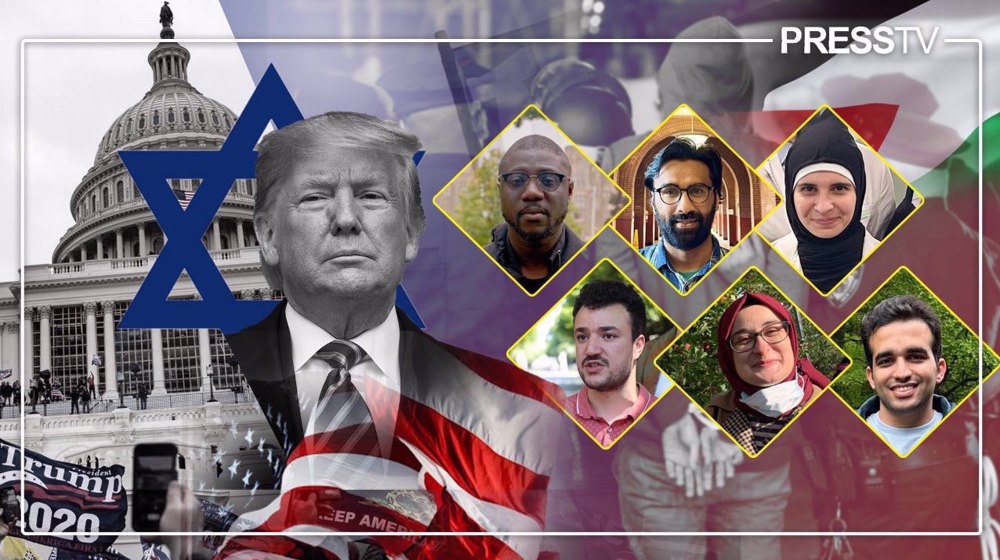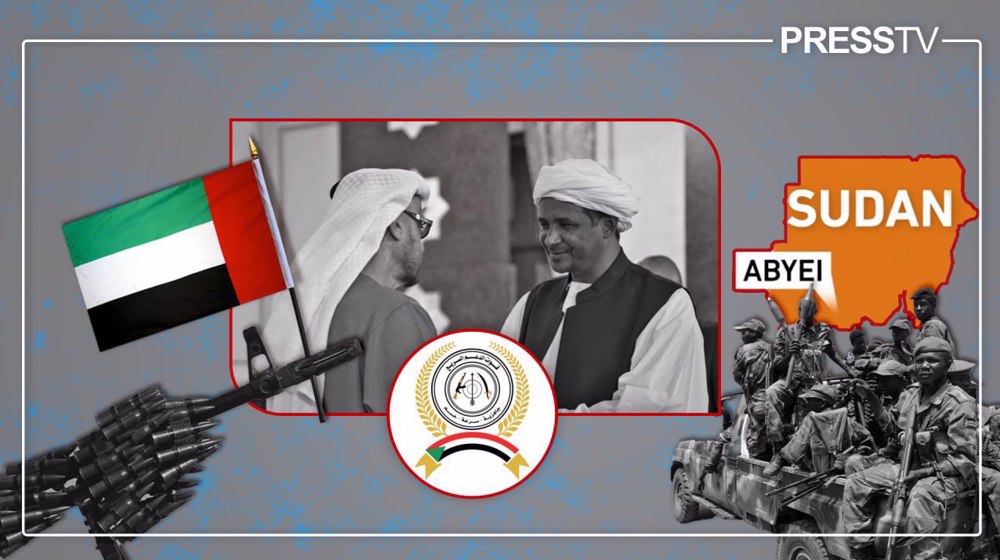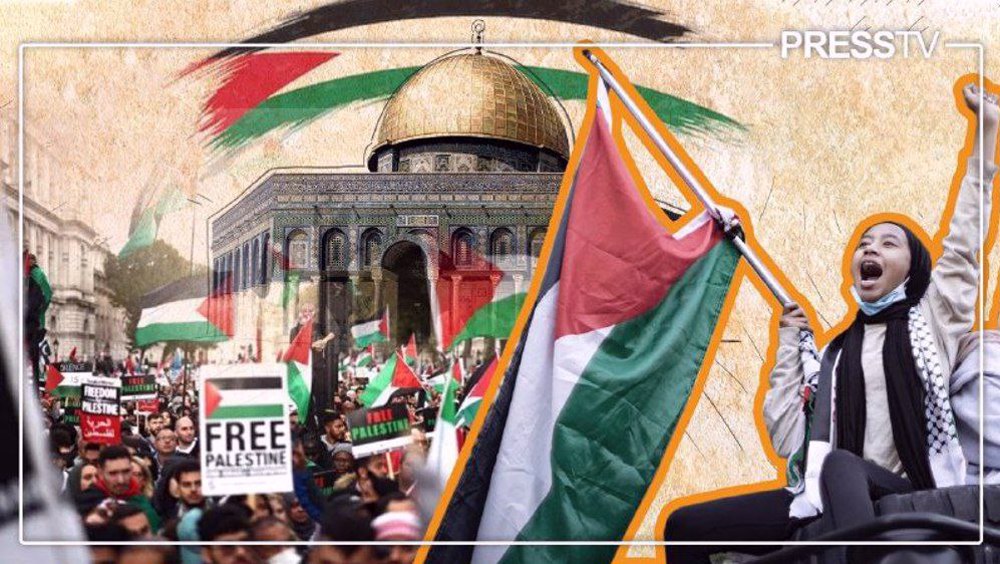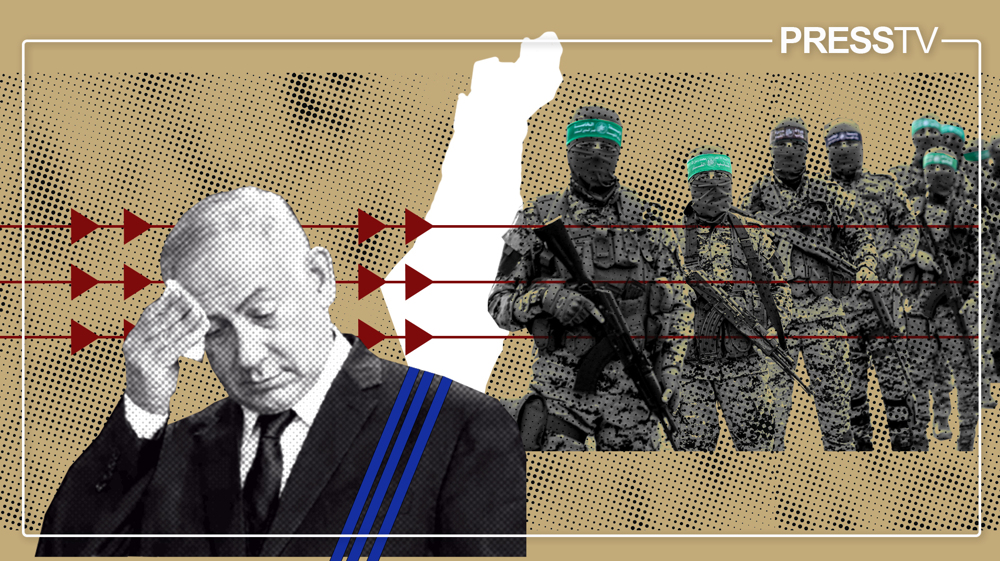Gaza ceasefire and the enduring lessons of honor, sacrifice and victory
By Wesam Bahrani
The ceasefire deal that is supposed to halt the US-backed Israeli genocidal war on Gaza, has cemented the unwavering commitment of the resistance axis to a doctrine in which the only outcome is victory or martyrdom.
In this revolutionary school of thought, there is no such thing as surrender or capitulation. And until death, there is no humiliation.
This ideology, deeply rooted in Imam Hussein's (AS) iconic uprising in the desert plains of Karbala centuries ago, rejects submission or surrender in all forms.
To deviate from this path would mean raising white flags — not as symbols of surrender, but as the very shrouds that have been used to wrap Palestinian martyrs for the past 468 days — around 47,000 of them, mostly children and women.
A man interviewed by local TV in the heart of the devastation uttered words that will echo through history: "Gaza is Karbala. Imam Hussein’s Karbala."
In the besieged Gaza Strip, the Palestinian resistance fought with unparalleled heroism, defying overwhelming odds. They eliminated more Zionist soldiers in the final stretch of this brutal 15-month war than at its onset.
And where? Jabalia. Beit Hanoun. The northern Gaza Strip — areas deliberately severed from the rest of the besieged Palestinian territory for over three months in a barbaric attempt to starve the population into submission by weaponizing food.
Yet, in just one week, scores, if not hundreds, of Israeli regime soldiers met their fate thanks to the resurgent resistance. These fighters fight for a greater cause and it doesn't matter who is at the helm. It can be Ismail Haniyeh, Yahya Sinwar or anyone else.
"People cannot really stop celebrating."
— Press TV 🔻 (@PressTV) January 15, 2025
From Deir al-Balah, Gaza, Press TV’s correspondent @AbubakerAbedW reports from the joyous atmosphere in Gaza as reports indicate a ceasefire deal will be announced soon. pic.twitter.com/QNPXS7cIk2
Reports abound that whatever casualty figures the Zionist regime admits publicly, the actual numbers are at least tenfold. Had this been a true man-to-man battle, there would be no ceasefire at all. Benjamin Netanyahu regime wouldn't have settled for anything other than elimination of Hamas.
The martyrdom of top-ranking Hamas leaders, Haniyeh and Sinwar, did nothing to halt the momentum of resistance. The Palestinian fighters continued launching devastating attacks and ambushes, drawing the enemy into one fatal trap after another.
Meanwhile, the Zionist war machine, notorious for its unrelenting massacres, escalated its brutality, slaughtering women, children, and the elderly with mechanical cruelty. This ceasefire was not a concession, it was the admission that the occupation concedes defeat and is in no position to continue its aggression without results.
Hamas meticulously planned Operation Al-Aqsa Flood (Storm) for a full year in secrecy. Even Iran, Hezbollah, and the Iraqi resistance were not informed of the historic operation that shattered the Zionist illusion of military and intelligence invincibility on October 7, 2023. It was a massive setback for the regime and its Western backers.
Only a day after, as the Israeli regime launched its carpet bombings, Hezbollah sprang into action, opening a military front in solidarity with Gaza. The Lebanese resistance poured its might into the fight, sacrificing its elite Radwan Force as well as other high-ranking commanders.
It was Martyr Sayyed Hassan Nasrallah who once defiantly rejected a US proposal to abandon the Palestinian cause, declaring to Washington: "You offer us security while Palestine, the Palestinians, and Al-Aqsa have none? Curse be upon you and your offer of security."
For Sayyed Nasrallah, words were never empty rhetoric. Hezbollah proved that martyrdom and victory are intertwined, standing shoulder to shoulder with Gaza in defiance of a crumbling Zionist regime.
✍️ Feature -'Capitulation': Israeli officials and media concede Gaza defeat as truce unfolds
— Press TV 🔻 (@PressTV) January 15, 2025
By Ivan Kesichttps://t.co/fc2vO3oXiD
Since the establishment of the Zionist entity, no force had ever successfully uprooted its colonial settlers—until Hezbollah did, sending drones and missiles plunging occupied Haifa and Tel Aviv into darkness.
For over a year, the Iraqi resistance relentlessly bombarded Zionist interests and illegal American bases across Iraq and Syria. In the process, they, too, sacrificed revered military commanders, enduring wave after wave of US airstrikes while never faltering in their military campaign for Gaza.
Then came the thunder of Iran. The Islamic Republic’s True Promise 1 and 2 operations sent a seismic shock through the Zionist regime. The second strike in particular rattled the enemy so profoundly that the US scrambled to deploy its own THAAD missile defense system—an unmistakable sign of the devastation Iran had inflicted.
And then there was Yemen—the most impoverished nation in West Asia region, yet the one true Arab nation that rose without hesitation in support of Palestinians. They proved what real Arab solidarity looks like.
Yemen’s defiant stand reaffirmed that the Axis of Resistance is not an exclusive alliance—it is an open call to all those who value honor, freedom, and dignity, those who believe in the righteousness of the Palestinian cause in letter and spirit.
It is surreal to think that just a year ago, Ansarullah’s Mohammed Abdul Salam met with Hamas leaders for the first time. Today, Yemen has taken on not just the Zionist regime but also the full might of the United States and Britain, striking them at will.
Despite relentless aerial bombardments by these three aggressors, Sanaa imposed an ironclad embargo on Israeli and Israeli-linked vessels attempting to dock at occupied Palestinian ports. Yemeni military even took the fight to American aircraft carriers.
Mohsen Saleh states that the blood, sacrifice, and patience of the Palestinian people have finally enabled the resistance factions in Gaza to achieve one of the greatest victories in Palestine's history. pic.twitter.com/u1lpr6fbpH
— Highlights (@highlightsnews1) January 16, 2025
The past months witnessed an escalation in Yemeni hypersonic missile strikes, raining devastation upon Tel Aviv and even crippling Israeli occupation's power plants.
All of this—every sacrifice, every bullet fired, every missile launched—was for the indomitable people of Gaza. A people who, in the face of genocide, have inscribed an epic for the ages—an epic of resistance, of justice, of defiance against colonialism, apartheid, and unbridled barbarity.
The Axis of Resistance forged a formula where victory defied annihilation. They left the occupying regime disoriented and vulnerable, while Hamas dictated the terms of the ceasefire. Meanwhile, Netanyahu’s regime teeters on the brink of collapse amid internal disintegration and protests.
And then, there was the Arab world—a collection of vassal regimes whose impotence was epitomized by the hollow statements of the Arab League.
Meeting in Bahrain, Arab leaders pathetically appealed to the UN Security Council to halt the war—a move so disconnected from reality that it bordered on absurdity. Did Secretary-General Ahmed Aboul Gheit forget that the UN Security Council had tried and failed multiple times, its efforts crushed under the American veto?
As Washington’s loyal allies, Arab states wielded immense leverage—control over vast oil and gas reserves that could have ended the 15-month genocide within 24 hours had they chosen to act.
Instead of pleading, they could have compelled Egypt to throw open the Rafah border and flood Gaza with life-saving aid. The oil-rich Gulf monarchies could have easily reassured Cairo, offering financial buffers against any punitive US retaliation.
But they did nothing. They chose to do nothing. And in this stark contrast lies an undeniable truth:
If an Arab ruler and Abu Obeida, the masked spokesman of Al-Qassam Brigades, were to speak at the same time, the entire Arab world would tune in — not to their rulers, but to the voice of the voice of resistance.
That alone speaks volumes.
And somewhere beyond this world, martyr Haj Qassem Soleimani, the legendary anti-terror commander, is watching and smiling as the occupation beats the dust.
Wesam Bahrani is an Iraqi journalist and commentator.
(The views expressed in this article do not necessarily reflect those of Press TV.)

'Land of the unfree': Trump admin’s war on pro-Palestine activism on US campuses

The forgotten war: Sudan, crimes against humanity, and UAE’s deep complicity

Intl. Quds Day: None of us are free until Palestine is free – river to the sea
Nigerian security agents plan fresh attacks on followers of Sheikh Zakzaky in Abuja: Report
Bill to seize mosques in India gains presidential assent
Over 600,000 children in Gaza at risk of ‘permanent paralysis’: Ministry
VIDEO | US, Europe anti-Trump protests
Yemen accuses US of targeting civilians in Eid airstrike
VIDEO | US bombing campaign fails to deter Yemen
Hamas calls for mass participation in general strike in West Bank
Europe standing on wrong side of history by appeasing Israel: Iran







 This makes it easy to access the Press TV website
This makes it easy to access the Press TV website